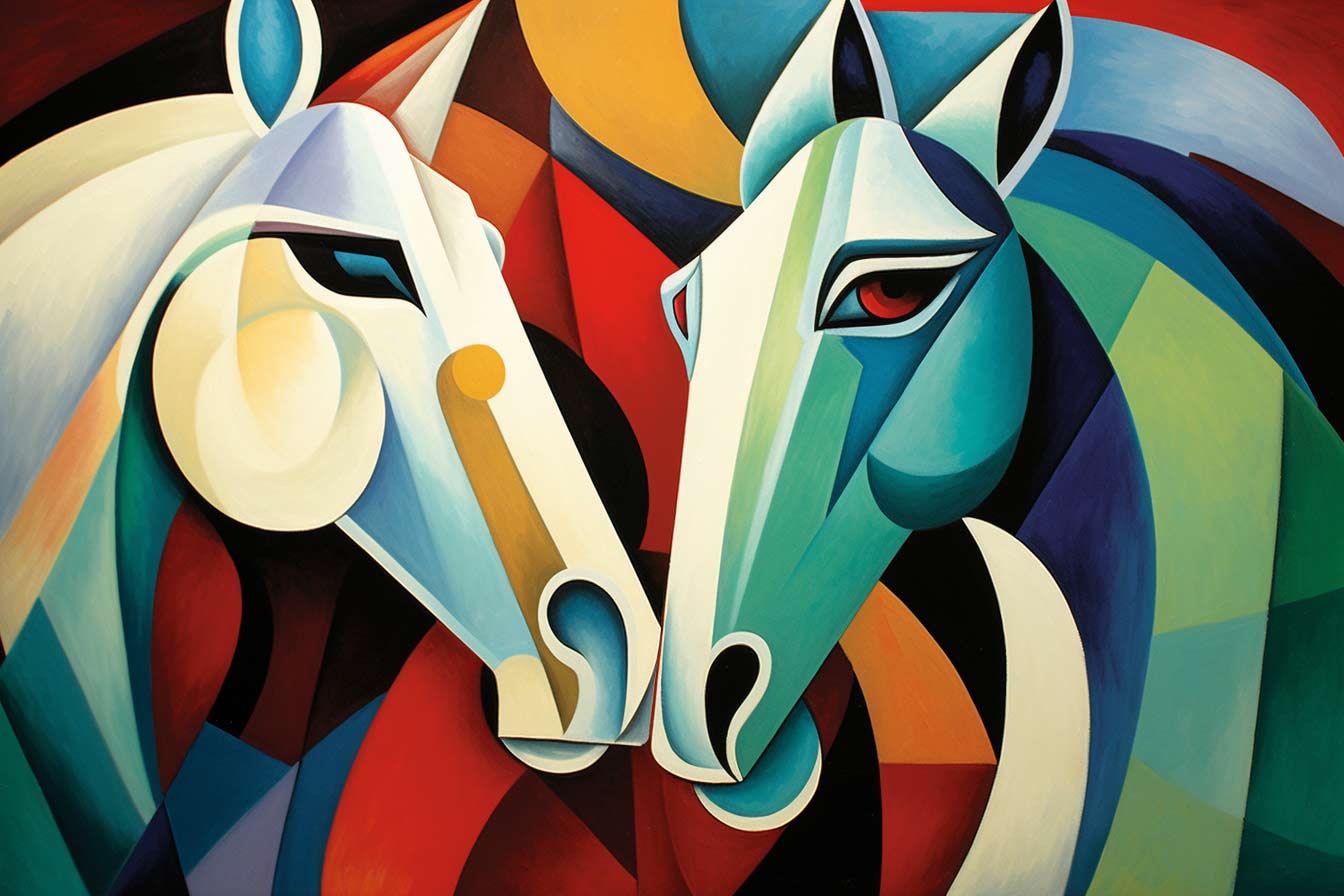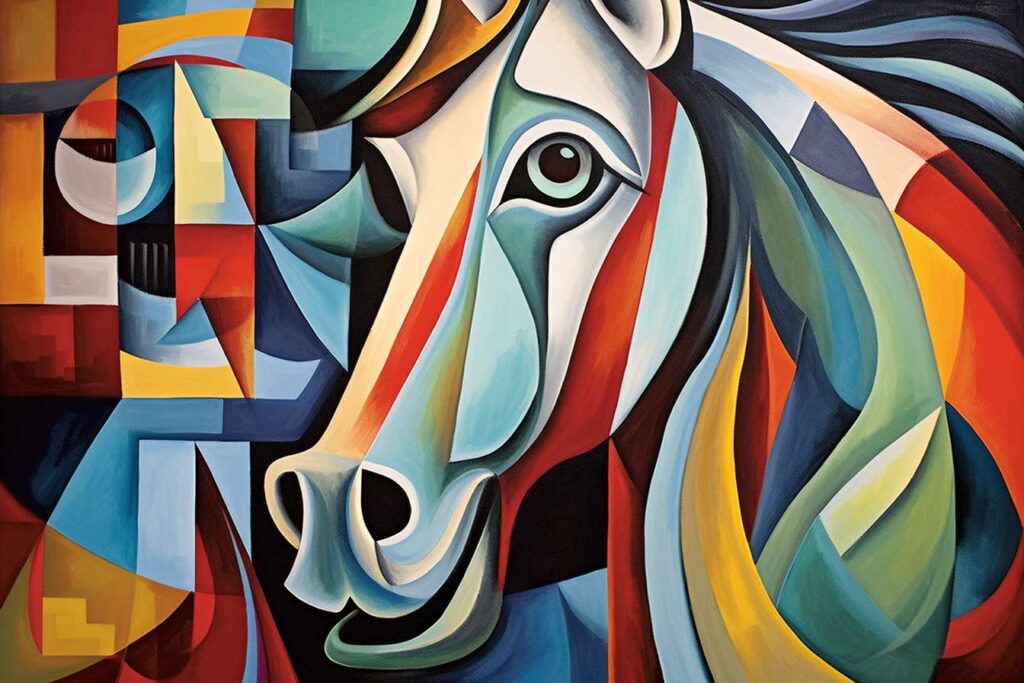Abstract Animals: Multifaceted Depictions of Nature’s Best
Nature, in all her glory, has painted a grand tapestry of life, weaving tales of majesty, grace, and primal power within each creature that roams her vast expanse. From the serene meadows to the azure skies, every nook reverberates with the chorus of life. Yet, to truly understand, to genuinely appreciate the splendor of these beings, one must look beyond the conventional. The ‘Abstract Animals’ collection, with its Cubist inclination, beckons one into a world where the wild is reimagined, where creatures are both deconstructed and celebrated in an abstract tableau of multifaceted brilliance.
Fragmenting the Familiar: A Symphony of Shapes
Each animal, with its distinct silhouette, movement, and aura, is a masterpiece of evolution. The Cubist’s canvas takes this intrinsic beauty and fragments it, not to diminish but to delve deeper. A horse, in its galloping glory, is re-envisioned through juxtaposed facets, each capturing a nuance of its motion. Birds, carriers of skyward dreams, are broken into angles that showcase their aerodynamic artistry and the poetic curve of their wings. The result is a realm where recognition and revelation dance in tandem, where the familiar is rendered fascinatingly foreign.
Merging Moments: Nature’s Narrative Nuanced
Nature does not stand still, and neither do her denizens. A creature’s essence is not just in its static form but in the myriad moments that define its existence. ‘Abstract Animals’ embraces this dynamism. It presents animals not as singular entities but as a confluence of actions, attitudes, and angles. The majestic lion, for instance, isn’t just its regal mane but also its prowling presence and piercing gaze, all converging on a single canvas.
From Abstract to Actual: The Heartbeat Behind the Facets
Beyond the fragmented forms and abstract portrayals lies the undeniable heartbeat of the creature. And this is the triumph of the ‘Abstract Animals’ collection. In deconstructing, it does not distance but draws one closer. Each facet, each angle, while abstract in its rendition, is unmistakably rooted in reality. It urges the observer to not just see but to sense, to not just admire but to empathize, to connect with the wild in ways words seldom can convey.
The ‘Abstract Animals’ collection stands as a testament to the wonders of the wild and the visionary potential of Cubist artistry. It is a journey that traverses the terrains of both nature and imagination, offering a fresh perspective on the creatures we thought we knew. In fragmenting and reassembling, in abstracting and accentuating, it captures the very soul of the animal kingdom, echoing its beauty in a myriad of mesmerizing ways.

